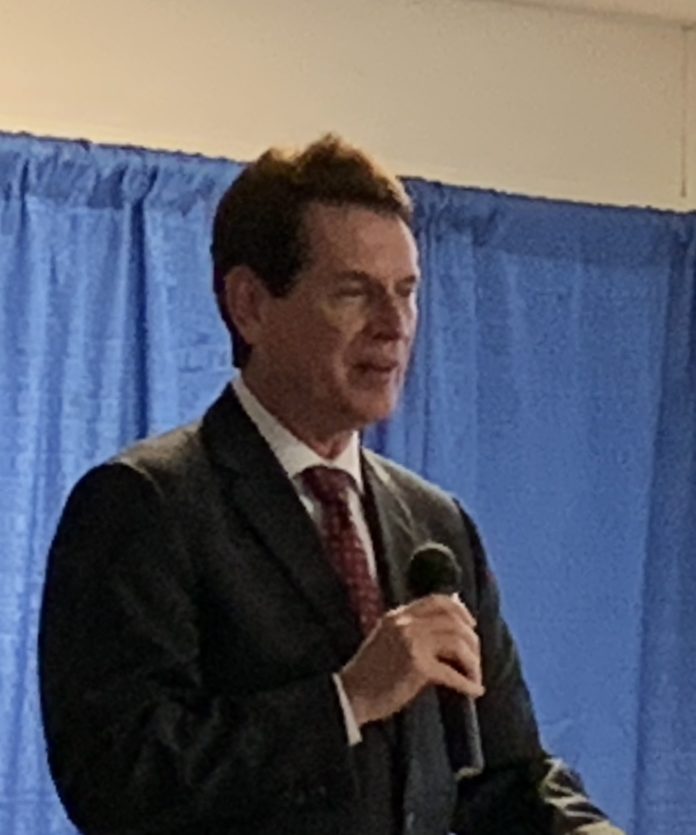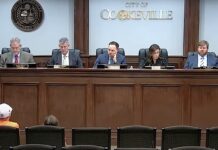By Michelle Price
UCBJ Managing Editor
CROSSVILLE – The Crossville-Cumberland County Chamber of Commerce recently held its annual membership gala at the Cumberland County Community Complex.
Chamber President & CEO Brad Allamong was optimistic about the future for Cumberland County and the Chamber.
“I think you will find yourself using some new terms in the coming year, such as: pro-active, unique, innovative and even, ‘a model community,’” said Allamong. “Why would I say that, why raise expectations, and why think that the coming year will be any different than years before?
“I suggest these things because there is a new vision emerging. An apparent, ‘pro-growth’ agenda that offers hope to a broader community.”
Allamong commended the community for programs designed to advance the workforce and education, such as the “Middle College” program at Roane State, which makes it possible to graduate from Roane State while completing high school credits and graduate with a two-year college program two weeks ahead of high school graduation.
Cumberland County was also designated as an “Oasis County,” the only such program in middle Tennessee. As an “Oasis County,” Cumberland is beginning to work on the ACT Work Ready goals and the planning for a new Industrial Readiness Program that utilizes the Cumberland County School’s new, Work Ethic Distinction, as a way of understanding and achieving “soft skills” that are currently in demand.
“These advances are not those of a destitute and poor ‘whoa is me rural community’ but, the opportunities of a forward thinking and self-determining community usually identified with the work of the mini-metro communities of the south,” praised Allamong.
While celebrating the accomplishments that were made in 2018, Allamong acknowledged that in 2019 the community and the Chamber would need greater involvement and a more supporting business leadership.
“Very soon, we will be challenged with ideas such as: Tax Increment Financing Districts, Opportunity Zones, and even institutional challenges that while may have been acceptable before; may not permit the growth we desire today,” concluded Allamong.








